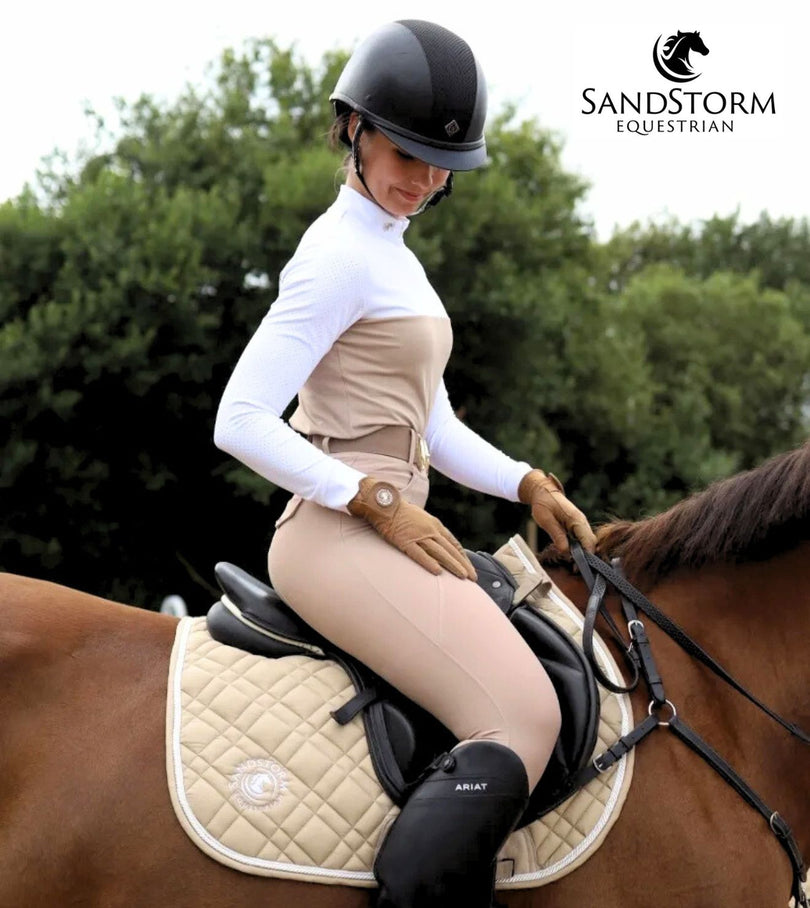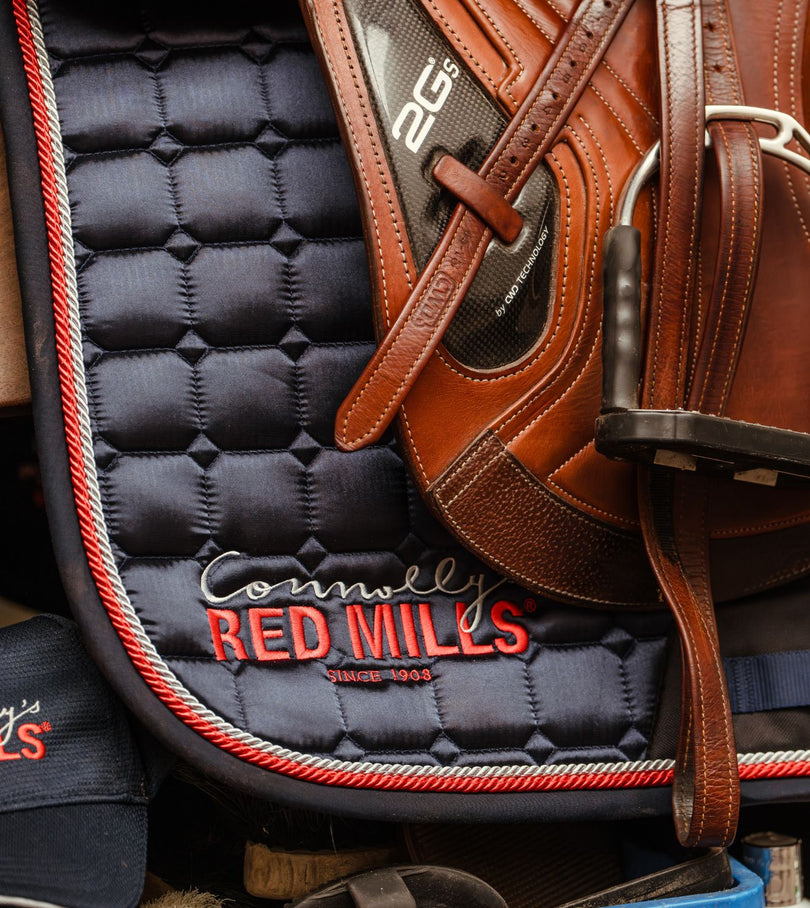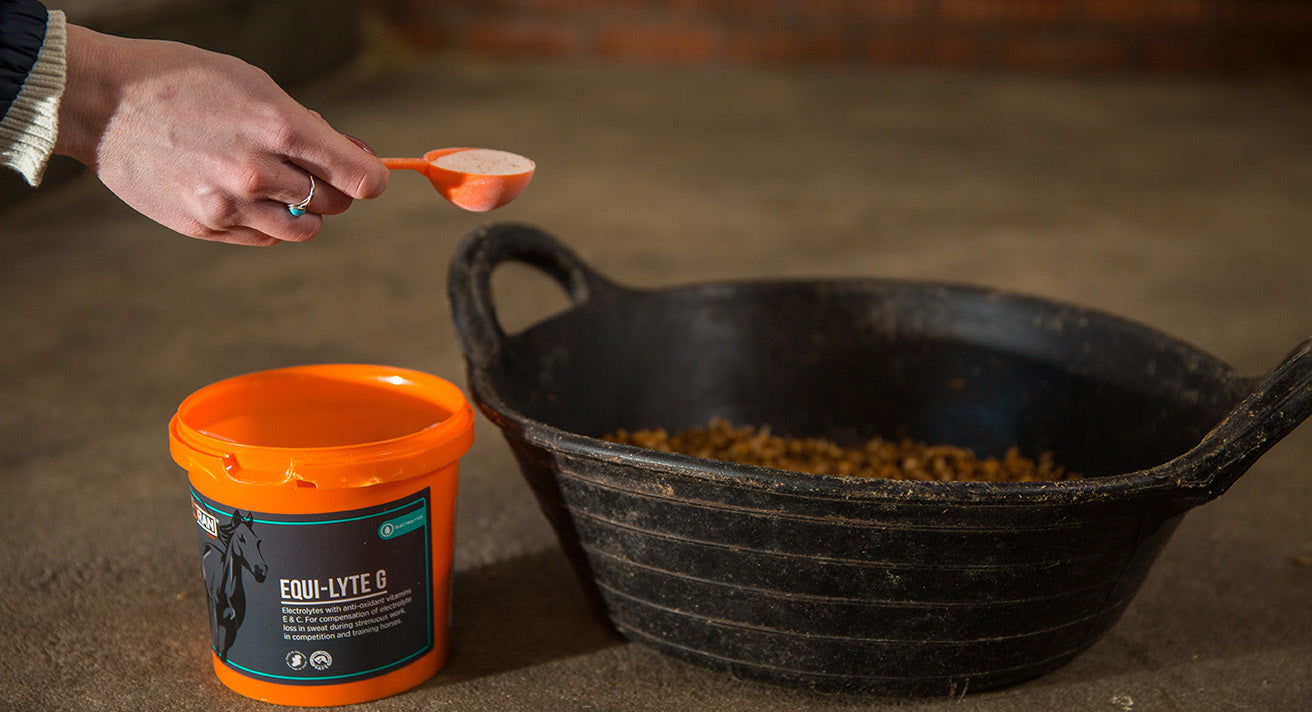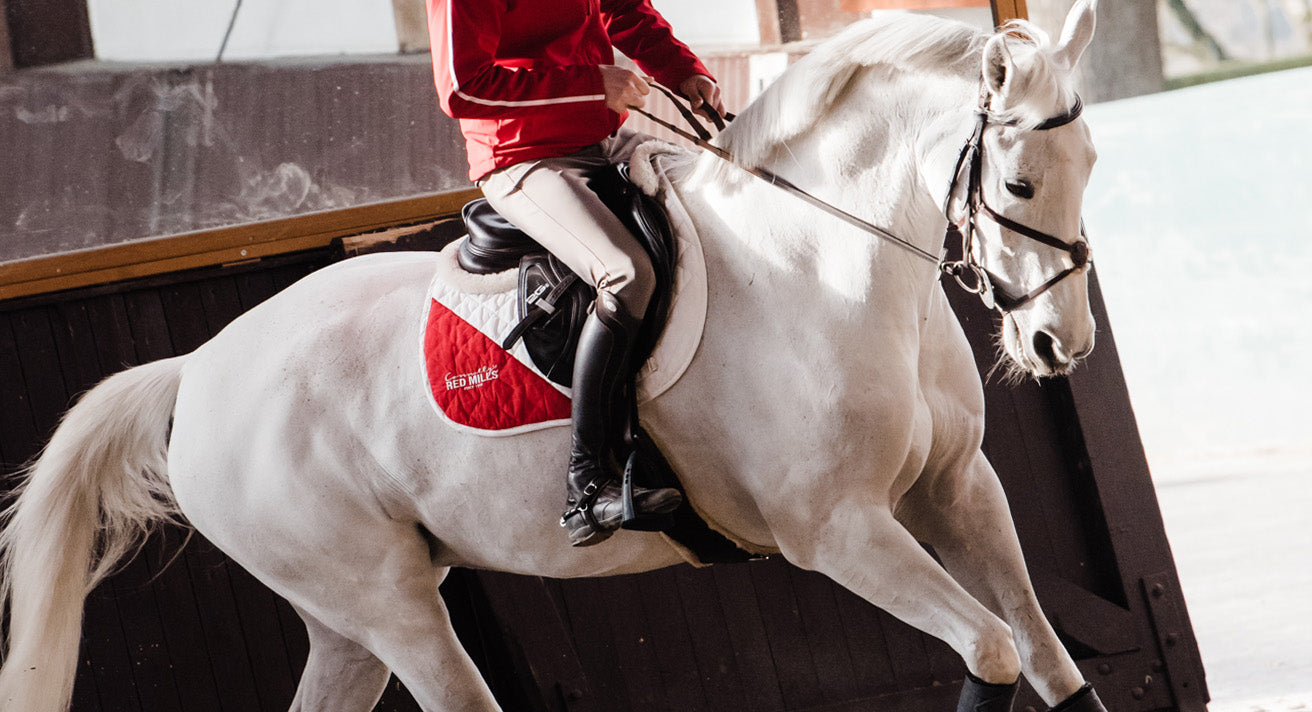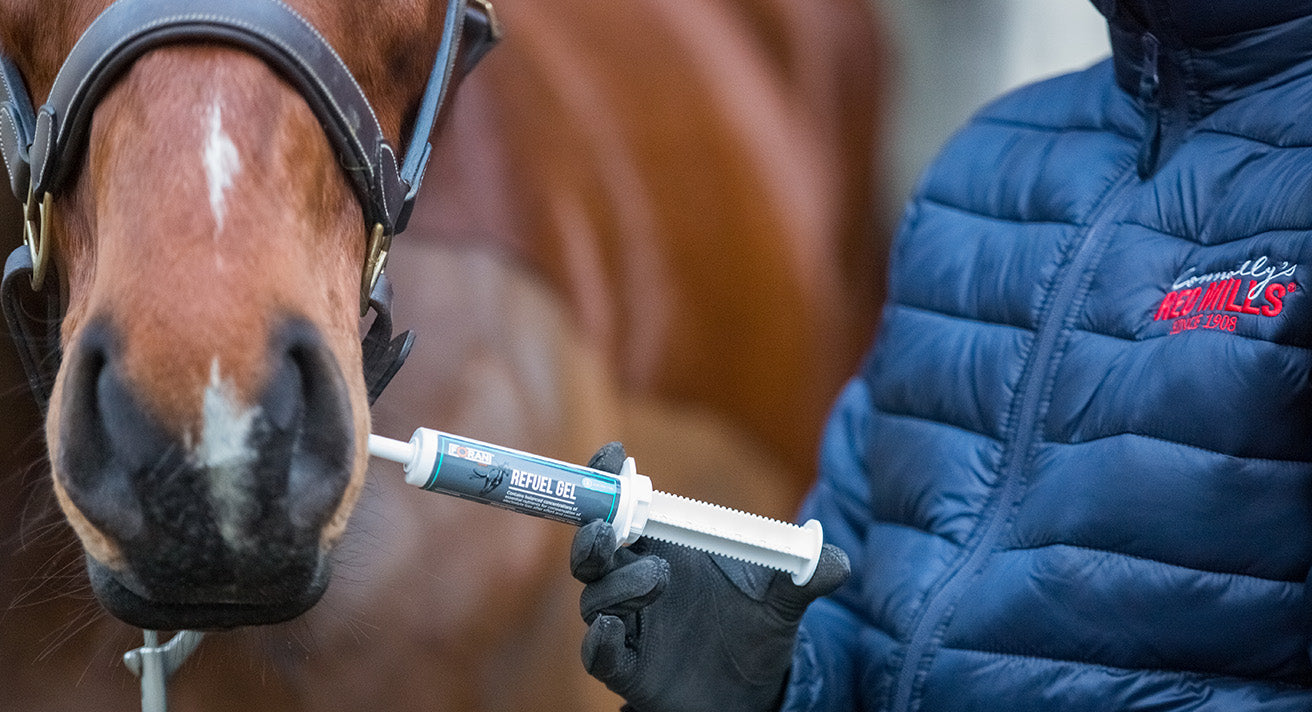Horses and humans produce sweat to eliminate heat. The same as humans, horses lose ‘salts’ in their sweat, known as electrolytes, which are essential minerals that function throughout the body in muscle contraction.
Both the water and the salts lost in sweat must be replaced to ensure rehydration, which is crucial to exercise recovery. A horse’s normal diet isn’t typically rich in salts, so electrolyte supplementation is necessary for those horses in heavy work or competition.
What are electrolytes for horses?
Essentially electrolytes are minerals that form salts which dissolve in the horse’s blood stream. They are necessary for nerve function, muscle function, digestion, nutrient absorption, and brain function. They are, in fact, responsible in some way for all the chemical reactions and pathways that sustain life. The actual electrolytes are: calcium, potassium, sodium, magnesium, chloride, bicarbonate and phosphate.
When should you supplement electrolytes?
In simplest terms, a horse needs extra electrolytes when they are sweating over a period of time. Electrolyte supplements are balanced so that the electrolytes are available in the ratios that the horse will need after sweating, and not just sodium and chloride.
If your horse has sweated heavily during exercise then they will benefit from electrolyte supplementation. However, bear in mind that transport can also cause horses to sweat, particularly in warm weather and even standing in the horsebox on a hot day can cause a horse to sweat enough to warrant extra electrolytes. In addition, older horses, particularly those suffering with Cushing’s disease, may sweat profusely during warm summer days and will need electrolytes.

How to give electrolyte supplements?
Electrolytes are available in powder form, such as Foran Equine Equi-Lyte G which can be added to feed or water. Equi-Lyte G is available as individual sachets or in 1kg, 4kg or 10kg tubs. Powerful antioxidants Vitamin C and E are added to Equi-Lyte G to help reduce cellular injury and aid muscle recovery.
Electrolytes are also available in preloaded syringes of gel in Foran Equine’s Refuel Gel. These syringes are particularly useful at a competition for quick and easy once off administration. Refuel Gel also has added B vitamins, plus antioxidants Vitamins C and E, to aid muscle recovery and appetite.
Always have water available
You should never give electrolytes if the horse does not have access to water. Electrolytes without water will make the horse more dehydrated. Never give electrolytes to a distressed horse or a horse that is not recovering well after exercise without professional advice. Some horses may refuse water after competition even though they are dehydrated. Adding apple juice to the water may tempt them to drink.
Adding an electrolyte supplement every day will not “load” the horse’s system. The horse will eliminate what it doesn’t need on a daily basis. But, adding electrolytes every day to horses in training will ensure that any daily electrolyte losses are replaced, thereby helping to improve post-exercise recovery and performance.
For further advice on electrolytes contact our expert team.






